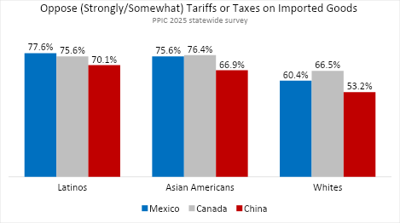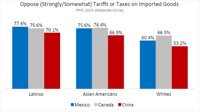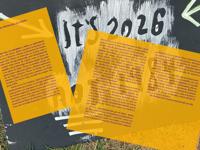
Donald Trump has plunged the United States into a full-scale trade war with its key trading partners – Mexico, Canada and China. He has further escalated tensions by threatening to impose additional tariffs of up to 100% on Chinese products. The turn toward protectionism is a remarkable development from a nation that has long been a global leader of free trade.
Like all wars, the greatest casualties fall on everyday people who are simply trying to keep their heads above tempestuous waters. In the United States, Latinos are one such group who often bear the terrible costs of political and economic wars. As an expert pollster on Latino public opinion, I was eager to learn more about their views toward the evolving trade war. Still, I was not optimistic about finding reliable surveys on Latino foreign policy attitudes since such questions are rarely included in public opinion surveys.
Latinos are rarely asked questions about foreign affairs, largely due to the mistaken belief that they are domestically oriented and that foreign policy issues are a luxury reserved for political or economic elites. This, of course, is false since Latinos have deep transnational ties throughout Latin America and the globe. Over the years of doing focus groups and polling, I have often been amazed by the degree to which respondents discuss events in Mexico or other Latin American countries when evaluating domestic U.S. politics. Fortunately, the Public Policy Institute of California’s 2025 statewide survey included three separate questions gauging support for and opposition to tariffs and taxes on imported goods from Mexico, Canada and China.
California’s diversity provides a valuable opportunity to examine Latino attitudes relative to those of Asian Americans and non-Hispanic Whites. Unfortunately, the Black/African American sample was too small to compare their responses.
Californians broadly oppose Trump’s tariffs on imported goods from Mexico, Canada and China. However, Latino and Asian American attitudes differ sharply from those of non-Hispanic Whites. Both Latinos and Asian Americans express significantly greater opposition to Trump’s tariffs, with a 17-point gap separating them from non-Hispanic Whites on tariffs targeting Mexico and China. Although the opposition gap is smaller for tariffs toward Canada, Latino and Asian American views remain closely aligned and distinct from those of non-Hispanic Whites.
Non-Hispanic Whites are the least supportive of tariffs targeting Canada and the most supportive of those aimed at China, with support for tariffs against Mexico falling in between. These country-specific differences mirror findings from experimental research showing that support for free trade varies depending on whether respondents are presented with scenarios about offshore production in Mexico, Canada or China. Such studies suggest that opposition to free trade among non-Hispanic Whites is largely driven by a perceived loss of status associated with the decline of American jobs. Trump’s trade rhetoric and policies are directed at this segment of the electorate, but they hold little appeal for Latinos and Asian Americans.
The similar attitudes of Latinos and Asian Americans on tariffs, a key foreign policy issue, suggest these emergent groups could form coalitions around shared foreign policy goals. Nearly all existing scholarship on multi-ethnic or multi-racial coalitions focuses on domestic issues or candidates as the foundation for collective empowerment. I want to put forth the bold idea that such coalitions can emerge from shared foreign policy values and goals. Both Latinos and Asian Americans express a common desire to increase economic ties between the United States, Mexico, Canada and China. The next step is transforming that vision into reality.
At the end of the Cold War, scholars and policymakers anticipated and celebrated the rise of multiculturalism in foreign affairs. Yet, at that time, however, the limited political influence of Latinos and Asian Americans constrained their ability to shape U.S. foreign policy. But that was then.
Today, these communities are demographically and politically influential, with leaders and organizations actively mobilizing them to shape domestic politics. The time to channel that power to international affairs is long overdue.











(0) comments
Welcome to the discussion.
Log In
Keep it Clean. Please avoid obscene, vulgar, lewd, racist or sexually-oriented language.
PLEASE TURN OFF YOUR CAPS LOCK.
Don't Threaten. Threats of harming another person will not be tolerated.
Be Truthful. Don't knowingly lie about anyone or anything.
Be Nice. No racism, sexism or any sort of -ism that is degrading to another person.
Be Proactive. Use the 'Report' link on each comment to let us know of abusive posts.
Share with Us. We'd love to hear eyewitness accounts, the history behind an article.